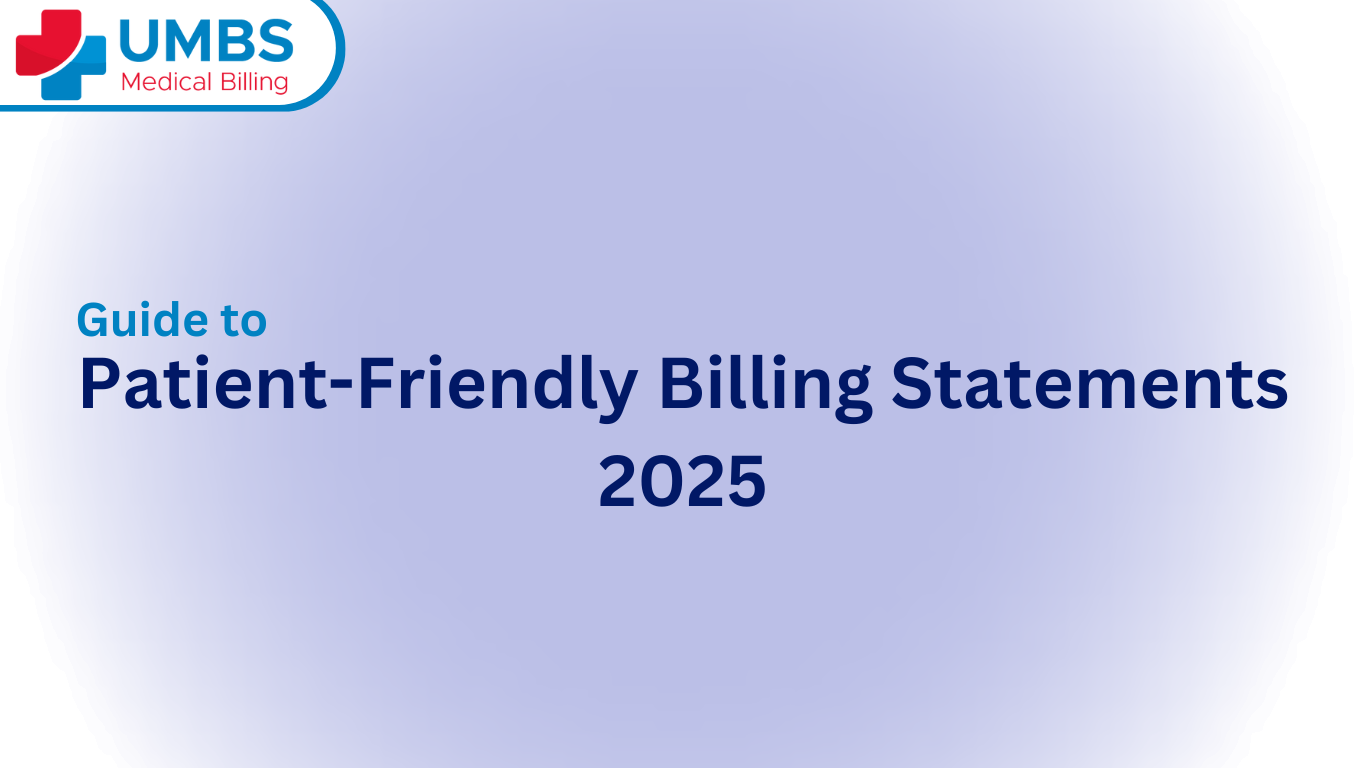Billing in healthcare can often feel overwhelming—for both providers and patients. While medical professionals focus on delivering excellent care, patients are left trying to make sense of complex, code-heavy, and unclear billing statements. This is where patient-friendly billing statements come in.
In this comprehensive guide, you’ll learn everything you need to know about what patient-friendly billing means, why it’s important, and how to create one that improves payment rates and enhances the patient experience.
🔍 What Is a Patient-Friendly Billing Statement?
A patient-friendly billing statement is a clear, easy-to-understand summary of what a patient owes for medical services. It replaces technical terms, confusing billing codes, and unclear charges with simple language, organized layouts, and transparent cost breakdowns.
Key Components:
- Patient’s name and date of service
- Description of services (no medical jargon)
- Total charges
- Insurance payments and adjustments
- Final amount due by the patient
- Payment methods and due date
- Contact information for questions
🎯 Why It Matters
Here are some important reasons why clear billing statements are essential for today’s healthcare environment:
✅ 1. Improves Patient Satisfaction
Patients are more likely to trust and return to a provider who communicates clearly. Confusing bills can damage that trust.
✅ 2. Reduces Phone Calls
Clear billing reduces the need for follow-up calls and complaints, saving your staff time.
✅ 3. Faster Payments
When patients understand exactly what they owe and why, they pay more quickly.
✅ 4. Fewer Billing Disputes
Transparency leads to fewer arguments and misunderstandings about charges.
✅ 5. Strengthens Patient Loyalty
A positive billing experience can influence patients to stick with your practice or refer others.
🧱 Essential Elements of a Patient-Friendly Statement
Let’s break down what every patient-friendly bill should include.
🔹 1. Clean Layout
- Use bold headers
- Organize information into boxes or columns
- Avoid clutter and tiny fonts
- Use bullet points and whitespace
🔹 2. Clear Terminology
- Say “Lab test” instead of CPT codes like “80053”
- Say “Blood draw” instead of “36415”
- Use words patients understand: office visit, medication, x-ray, etc.
🔹 3. Billing Summary Box
Place a summary at the top of the page with:
- Total charges
- What insurance covered
- Adjustments
- Balance owed
This helps patients see the big picture instantly.
🔹 4. Detailed Service Breakdown
For each charge:
- Date of service
- Description of the service
- Cost
- Insurance portion
- Patient responsibility
🔹 5. Insurance Info
Explain:
- What insurance paid
- Why certain items weren’t covered
- If there are deductible/co-insurance/co-payments involved
🔹 6. Payment Options
- Online payment links
- Mail-in address
- Phone number to pay
- QR code for easy mobile access
Include a clear due date and explain payment plan options if available.
🔹 7. Contact Details for Help
Offer a customer service number or patient billing department contact info. Even better—list office hours and an email address too.
💡 Tips for Making Statements Even Better
✔️ Use Digital Billing Tools
Many practices now send statements via text, email, or patient portals. This allows for faster delivery and easier access.
✔️ Translate Into Multiple Languages
If you serve diverse communities, provide bills in the languages most commonly spoken in your region.
✔️ Offer Visual Aids
Use pie charts or bar graphs to show how the total bill is split between insurance and patient responsibility.
✔️ Add a Billing FAQ
Include common questions like:
- Why didn’t my insurance cover everything?
- What is an adjustment?
- How do I set up a payment plan?
✔️ Test With Real Patients
Have a few patients review your new statement format. Ask for honest feedback and make improvements.
🛠️ Tools to Help Create Patient-Friendly Statements
- Medical billing software with patient-friendly templates
- Patient portal platforms with statement preview and messaging features
- Revenue cycle management (RCM) services that include communication support
- Third-party print/mail vendors who specialize in healthcare billing statements
✅ Patient-Friendly vs. Traditional Billing
| Feature | Traditional Statement | Patient-Friendly Statement |
|---|---|---|
| Medical Codes | ✅ Yes | ❌ No |
| Insurance Breakdown | ❌ Minimal | ✅ Clear & Detailed |
| Plain Language | ❌ Rare | ✅ Always Used |
| Visual Design | ❌ Often Poor | ✅ Clean and Organized |
| Online Payment Options | ❌ Rare | ✅ Common |
🧾 Sample Patient-Friendly Statement (Example Layout)
Billing Summary:
- Total Cost: $350
- Insurance Paid: $220
- Adjustment: $50
- You Owe: $80
- Due By: April 15, 2025
Services Provided:
| Date | Service | Charge | Insurance | You Owe |
|---|---|---|---|---|
| Mar 5, 2025 | Office Visit | $150 | $120 | $30 |
| Mar 5, 2025 | Lab Test | $200 | $100 | $50 |
🚀 Conclusion
Clear and easy billing statements can make a huge difference in the patient experience and the financial health of your practice. A patient-friendly billing statement is not just a nice feature—it’s a vital part of modern healthcare operations.
It leads to faster payments, fewer disputes, and more satisfied patients.
By using plain language, modern tools, and clear layouts, your practice can stand out and improve your revenue cycle efficiency.






